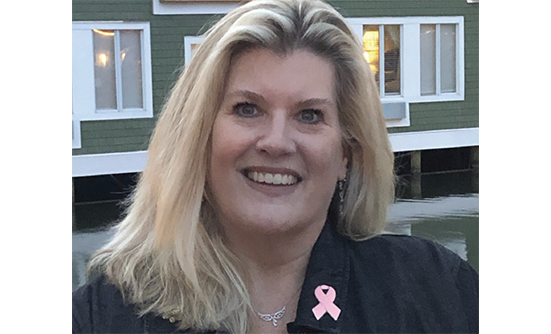
We hear a lot these days about the importance of managing our stress—enough to make us feel stressed about being overstressed! Being calm and centered is clearly preferable to being wired and agitated. It makes us better partners, workers, friends, and parents. But are there actual health reasons to warrant paying close attention to our mindset?
Mindset
Indeed, there are. Mindset is critical for living an “anticancer lifestyle” for 2 main reasons. First, chronic stress is harmful to our health and has been shown to promote the growth of tumors in lab animals.1 Second, managing our mindset is key to developing a frame of mind that enables us to make sustainable healthy lifestyle changes.
This is why our Anticancer Lifestyle (www.anticancerlifestyle.org) online course includes sections devoted to diet, fitness, mindset, and environment and places emphasis on the “mindset” module.
Remember that not all stress is “bad.” In fact, healthy stress can push us to reach our goals or sharpen our thinking. By contrast, unhealthy stress keeps our bodies in a state of high alert by raising our heart rate, blood pressure, and cortisol levels. This kind of physiological stress reaction evolved in humans to prepare our bodies for the famous “fight-or-flight” response that is essential when confronting a life-threatening situation.
This type of emergency physical response, however, is also triggered in the body in reaction to chronic stress—the unrelenting stress from a toxic work environment, fear of the unknown, or a troubled relationship (or marriage).
Stress and Cancer
Although there is no clear evidence that stress causes cancer, some evidence shows that chronic stress promotes disease progression in animals. One animal study showed ovarian tumor growth in mice as a response to stress.1 There is also some evidence that our stress hormones may promote cancer recurrence.2
Many reasons have been proposed for the connection between stress and cancer, focusing on an increase in stress hormones, such as adrenaline and norepinephrine,3 a suppression of our immune system, and increased inflammation in our body—all of which result from a cascade of reactions that take place in a body that is chronically stressed.4-7
The good news is that we have many tools at our disposal for reducing stress. The techniques listed below are all supported by research that shows their effectiveness.
Stress-Reduction Techniques
Mindfulness is the process of bringing our attention to experiences happening in the present moment, while recognizing and accepting our feelings, thoughts, and bodily sensations. When you are mindful, you focus awareness on what you are experiencing right now, whether it’s doing the dishes or walking in a forest.
Mindfulness training emphasizes acceptance, paying attention to your thoughts and feelings without judgment, and considering whatever is happening to you, physically and emotionally, with a sense of curiosity and interest. Mindfulness is useful in de-escalating sensitive personal situations, by allowing you to pause before reacting in a way you may later regret.
When you learn to be “in the moment,” you are less likely to dwell on regrets about the past, or fears about the future. One study of men with prostate cancer used the “watchful waiting” approach, meaning that instead of immediately getting treatment, they waited to see whether their cancer was progressing.8 When using this approach, cancer treatment only begins when the cancer shows signs of progression. This state of uncertainty is often anxiety-provoking. The men in this study who practiced mindfulness regularly were better able to cope with this type of anxiety than men who did not practice mindfulness.8
Mindfulness-based stress reduction is an 8-week course that meets weekly for intensive group education and training in mindfulness. Mindfulness-based stress-reduction courses are widely available in the United States and are easy to access online. The teacher is trained to guide you in how to practice awareness and slow down your automatic responses. This training helps you to access inner resources for healing and stress reduction. The emphasis is on exploring modes of perception, the mind-body connection, stress, and ways to cope and strive in the midst of a stressful world.
Meditation is a broad term to describe a wide range of methods for training the mind, emotions, and body. There are many types of meditation, such as loving-kindness meditation, guided meditation, mantra-based meditation, and more. All meditations usually involve sitting down while stilling our mind with conscious, non-judgmental awareness.
Meditation has been shown to improve the ability to concentrate and increase emotional stability. Regular meditation can decrease insomnia and the risk of chronic depression. It also improves our immune system and hormonal function. (For a list of our favorite meditation apps, visit https://anticancerlifestyle.org/4-mediation-apps-to-help-you-through-difficult-times/.)
Our program promotes meditation and mindfulness practices as keys to getting better rest, taking our bodies out of an adrenalized fight-or-flight mode, and making healthful lifestyle changes.
Meditation can be practiced daily, at any given moment, for 1 minute or 1 hour. Each moment presents us the opportunity to STOP:
Stop
Take a breath
Observe
Proceed.
Types of Meditation
Movement meditations. Several types of movement meditations are available to choose from, including Yoga, T’ai Chi, and Qigong. These practices use movement as a form of meditation and a way to increase awareness of our body. These are especially useful for people who find the stillness of sitting meditation too challenging.
Cognitive behavioral therapy is a way of working with thoughts and behaviors to develop self-understanding, self-compassion, and lifestyle changes. It is a solution-focused approach that involves a therapist who helps you understand the roots of your behavior and how to change it.
One clinical trial showed that women with breast cancer who were given skills to manage stress by using cognitive behavioral therapy lived longer and enjoyed a longer period of being disease-free than women with breast cancer who did not use this type of therapy.9
Deep diaphragmatic breathing is a specific technique for slowing and deepening the breath into the full lung capacity. This technique has the effect of slowing and calming the mind and the body.
Being in nature. Simply spending time outdoors in the fresh air and sunshine in a natural setting has powerful health benefits. Allowing the 5 senses to be immersed in the natural world, away from technology and the noises and distractions of modern life, can have positive effects on our immune system and our overall health.
Gratitude practice. Developing a gratitude practice, especially for people coping with a cancer diagnosis, has many proven benefits.10 Writing down the things you’re grateful for is a great tool to help you begin to change your mindset. The process is simple: 2 or 3 times a week (or more frequently if desired), write down 3 to 5 things, which could be people, sensations, or experiences, for which you are grateful.
At Anticancer Lifestyle, we have developed a gratitude practice worksheet to help you get started (see https://3taxps12icm318139n13n99p-wpengine.netdna-ssl.com/wp-content/uploads/2019/08/Gratitude-worksheet-seg-2.pdf).
Training Your Brain
As we battle the daily “what’s next” and “what should I do” anxieties that pop up incessantly in our brains, we have many options to train our brains to react differently to stressors, and to relax the “fight-or-flight” stress response that can be so damaging to our health when stress becomes chronic.
Although we may be far from sitting under a bodhi tree to contemplate life’s meaning, these tools can enable us to go about our daily lives with feelings of gratitude, calm, and clear intention.
Anticancer Lifestyle Program
The Anticancer Lifestyle Program is a free, self-paced, doctor-recommended online course that arms participants with tools to make desired lifestyle changes about diet, fitness, mindset, and environment (https://anticancerlifestyle.org/?utm_source=conquercancer&utm_medium=newsletter&utm_campaign=article). The evidence-based lifestyle modifications recommended in this course have been shown to reduce cancer progression and cancer recurrence.
Key Points
- Chronic stress is harmful to our health and has been shown to promote the growth of tumors in lab animals
- Managing our mindset is key to developing a frame of mind that enables us to make sustainable lifestyle changes
- Regular meditation and use of other stress-reduction techniques can decrease anxiety, insomnia, and the risk of chronic depression
- There is no definitive evidence that stress causes cancer, but some research shows that chronic stress may promote cancer progression and recurrence
References
- Thaker PH, Han LY, Kamat AA, et al. Chronic stress promotes tumor growth and angiogenesis in a mouse model of ovarian carcinoma. Nature Medicine. 2006;12(8):939-944.
- Perego M, Tyurin VA, Tyurina YY, et al. Reactivation of dormant tumor cells by modified lipids derived from stress-activated neutrophils. Science Translational Medicine. 2020;12(572):eabb5817.
- NCI Staff. Study suggests a link between stress and cancer coming back. January 14, 2021. www.cancer.gov/news-events/cancer-currents-blog/2021/cancer-returning-stress-hormones.
- Kruk J, Aboul-Enein BH, Bernstein J, Gronostaj M. Psychological stress and cellular aging in cancer: a meta-analysis. Oxidative Medicine and Cellular Longevity. 2019;2019:1270397. DOI:10.1155/2019/1270397.
- Payne JK. State of the science: stress, inflammation, and cancer. Oncology Nursing Forum. 2014;41(5):533-540.
- Mantovani A, Allavena P, Sica A, Balkwill F. Cancer-related inflammation. Nature. 2008;454(7203):436-444.
- Moreno-Smith M, Lutgendorf SK, Sood AK. Impact of stress on cancer metastasis. Future Oncology. 2010;6(12):1863-1881.
- Victorson D, Hankin V, Burns J, et al. Feasibility, acceptability and preliminary psychological benefits of mindfulness meditation training in a sample of men diagnosed with prostate cancer on active surveillance. Psycho-Oncology. 2017;26(8):1155-1163.
- Stagl JM, Lechner SC, Carver CS, et al. A randomized controlled trial of cognitive-behavioral stress management in breast cancer. Breast Cancer Research and Treatment. 2015;154(2):319-328.
- Garrison B, Hines S. Cultivating gratitude and hope during cancer treatment. Cancerwise. January 17, 2014. www.mdanderson.org/cancerwise/cultivating-gratitude-and-hope.h00-158905389.html.















